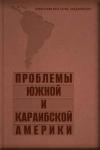Six Criteria for Military Intervention: Right Authority
Вход
Авторизуйтесь, если вы уже зарегистрированы
In this entry I explore the last one out of six criteria for military intervention, which defines who has the right to authorize military intervention.
Criterion 6: Right authority
It is rather important to ensure that a military intervention is legitimate and has broad support from the international community. The United Nations Security Council is the only international body that should represent the world’s voice and make decisions with binding force. But the politicization of the Security Council sometimes prevents it from making just decisions that could save lives. Members of the Security Council are guided in their vote by their national interests; and permanent members tend to exercise the veto right when the use of military force runs counter to their strategic interest in the afflicted country, even if non-intervention leads to continued mass atrocities.
Russia and China, for example, do in theory support the norm of the responsibility to protect, but in practice have historically advocated a non-interference policy in the internal affairs of other countries. This is partly because they are worried that the repeated invocation of military interventions could create a precedent for the international community’s interference in domestic affairs of nations; and this may one day lead to interference in their own conflicts with their sometimes restive minority populations. Such positions of non-interference contradict with the spirit of the norm of the responsibility to protect – stating that the international community should step up if endangered civilians are not protected by their own government.

Russia and China’s veto on Syria places the UN Security Council in a deadlock, paralyzing any legitimate actions to that end, at a time when the world community should help cease the massive violence in Syria. The combined population of Russia and China constitute only 21% of the world population, and though significant in number, is still a “minority” in supporting non-interference in the world debate on military intervention in Syria. These rough estimates don’t take into account any divisions on Syrian intervention within societies and considers only national positions presented at the UN Security Council meeting.
There is an initiative proposed by the Small Five Group (consisting of Switzerland, Costa Rica, Jordan, Liechtenstein and Singapore) that “permanent members should refrain from using the veto in cases of genocide, crimes against humanity, and ‘grave breaches’ of international humanitarian law”.[1] If this initiative were adopted it could mean that UN Security Council decisions on military interventions in cases of mass atrocities would be far more objective and fair. But this is highly unlikely now as the permanent members of the Security Council are quite reluctant to give up their veto right that gives them unprecedented influence over world security decisions.

The fact that the UN Security Council cannot always arrive at an agreement spurs the idea that military intervention can be authorized by regional organizations. Yet according to international law (Article 103 of the UN Charter), regional organizations are not authorized to use any force other than in self-defense. Thus, a regional organization’s backing of military intervention is not sufficient, but the support of regional organizations can still be crucial in executing the mandate of UN-authorized military interventions, such as in the African Union / UN Hybrid operation in Darfur.[2]
Although the United Nations has its shortcomings, it still remains a powerful organization in the world arena and the only one that can provide the necessary legitimacy and authorization for military interventions. Though there are still cases where regional organizations such as NATO undertake their own independent military interventions, having United Nations authorization represents broad support and eliminates cases where the “responsibility to protect” rhetoric is used to cover up military intervention that does not serve humanitarian purposes.
The norm of the responsibility to protect was unanimously adopted by all UN Member States (Libya and Syria were among those who endorsed this norm, but have failed to uphold it). Any military intervention outside of a UN Security Council mandate is subject to severe criticism and censure, and should be considered as a forceful infringement on the sovereignty of a nation state.
Military intervention is a very challenging decision to make and one that is even harder to implement. But such difficulties and challenges shouldn’t stand in the way of saving the lives of our fellow human beings. While it might take quite some time before the clear mechanisms behind the responsibility to protect are developed, but every life lost in conflict and every mistake made by the international community can at best be taken as a lesson on our road to improve our response to intra-state conflicts.
[1] The UN elections Campaign. Small Five Group Draft Proposal on Security Council Reform. http://www.unelections.org/?q=node/2385 (Accessed 22 October 2012).
[2] U.N. Peacekeeping Operations. UNAMID. http://www.un.org/en/peacekeeping/missions/unamid/ (Accessed 22 October 2012).





